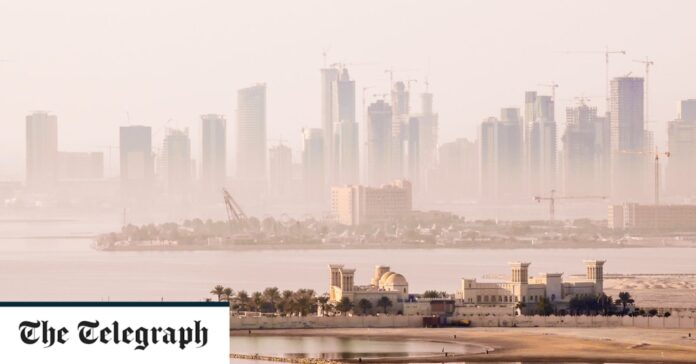Hissed at for holding her husband’s hand and angered by expat dinner parties… What life was really like in the World Cup host country
The run-up to the World Cup means Qatar is often in the media these days. Yet there is an unease around the event, rather than the usual jamboree of joy that such international sporting fixtures bring. In September, the Denmark team announced their strip would include a black third kit, to honour the migrant workers who have died during the preparations for the tournament. Last month, Labour leader Keir Starmer said that he wouldn’t attend due to Qatar’s human rights record; the Prince of Wales, who is president of the FA, also confirmed he would not be attending, citing a ‘busy diary’; British LGBT rights campaigner Peter Tatchell claimed to have been detained while protesting in the country; and the Australia team released a video statement calling for reform in the treatment of migrant workers and LGBT people.
Meanwhile, the 2019 death of a British travel boss, headhunted by Discover Qatar to boost tourism for the World Cup, was reported as suicide. But now a British coroner has ruled there was no evidence of suicidal intent – and reports claim that 10 weeks prior to his death he had been detained and ‘tortured’ by Qatari police. The shady speculations, the secrecy and the whispers are a contrast to the shining new stadiums, the glittering wealth. But they’re not a surprise to me – they just bring back memories.
In retrospect, neither my husband nor I were exactly sure how we came to be there, in Doha, a decade ago. A couple of phone calls, a generous offer, and we agreed that I’d accept a position at Qatar University. ‘I’d like to learn Arabic,’ I reasoned. ‘The villa sounds nice,’ my husband, Alan, offered.
The unspoken reason was our childlessness. We had just learnt that I couldn’t conceive and both of us needed a change from a life that was filled with reminders of what we had planned to do, but now wouldn’t.


